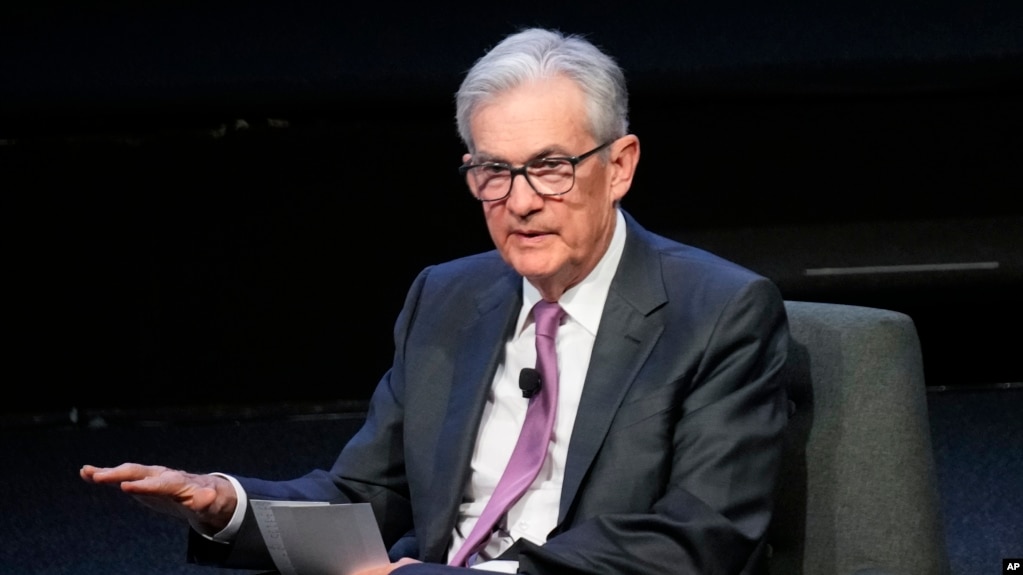Why the Interest Rate of US Treasury Notes Matters

The U.S. government needs money to operate.
A lot of that money comes from taxes. However, much of the money the U.S. government uses to pay its costs comes from borrowing in the form of U.S. Treasury securities.
Investors, who believe the U.S. government will be able to pay them back, agree to loan the government money for a period of time. They receive interest payments regularly or in a way set by the Treasury.
The difference between the loan amount and the investment return is called the yield.
In past years, the interest rate on the U.S. government 10-year note was low. For example, when the COVID-19 pandemic started, the interest rate for a 10-year government debt security was less than one percent. If you loaned the U.S. government $100, you would receive about one dollar a year in interest until the note “matures,” or is paid back.
Now, however, the yield has jumped to about five percent for a 10-year note. A note is a debt security with a term of between two and 10 years. That means investors who agree to lend money to the U.S. government for a period of 10 years will earn about a five percent return each year.

FILE - Credit cards are displayed on July 1, 2021, in Orlando, Fla. The jump in bond yields is raising the costs of consumer and business borrowing, including mortgages, auto loans and credit card debt. (AP Photo/John Raoux, File)
That sounds good for investors. But everyone is not happy about it.
The reason is that many other interest rates are tied to the U.S. rate for the 10-year note.
In a recent report, the Associated Press called the 10-year note “the centerpiece of the global financial system.”
Many mortgage rates, the interest rates people pay for their home loans, are connected to the 10-year note. As a result, borrowing money becomes more costly. Over the life of a 30-year home mortgage agreement, a homeowner could pay hundreds of thousands of dollars more in interest than just two or three years ago.
In addition, the high rates on the 10-year note make it harder for some new businesses to grow. A young business often does not make money. But if it wants to hire new people or create a new product, it will often take out a loan from a bank or agree to pay investors interest. Since the financial crisis of 2008, the cost of these loans has mainly been very low – only a little higher than zero percent interest.
The low rates permitted many companies to borrow money at a low cost. Many of the world’s economies that were struggling recovered because of the low rates. Individual investors bought stocks because they did not see a large cost to borrow money. They did not see U.S. Treasury securities as a good investment because their interest rates were so low.
But now, interest rates are rising. As a result, some businesses are choosing not to expand. Some are even reducing their workforce in order to reduce operating costs.
Why did the interest rates rise so fast?
The cost of living increased quickly once many countries re-opened after the pandemic. Cars, food and energy prices all went higher. The war in Ukraine reduced the food and energy supply in Europe and Africa, so those costs increased for Europeans and Africans.

FILE - Unsold 2023 Aviator sports-utility vehicles sit in a long row at a Lincoln dealership on June 18, 2023, in Englewood, Colo. (AP Photo/David Zalubowski, File)
Many people found that the usual amount of money did not buy the usual amount of goods. That is called inflation. In some countries, the price of food and energy doubled in a short time. Home prices increased because many people decided they needed more space if they were going to do their jobs from home.
The fast inflation concerned government banks around the world. In countries such as the U.S. and areas like Europe, central banks decided to raise the interest rates they control as a way to reduce, or slow, inflation.
Central bankers believe that increasing interest rates can keep people and businesses from spending too much money. To a point, the plan has worked. In the U.S., some data shows inflation is slowing.
Economists who study the U.S. have been surprised that the economy stayed strong even as interest rates for Treasury securities have increased. People are still spending money and the employment rate is high.

A screen tracks NVIDIA Corp. as a trader works on the floor at the New York Stock Exchange (NYSE) in New York City, U.S., October 23, 2023. (REUTERS/Brendan McDermid)
But some investors are thinking that a yield of about 5 percent is better than putting money into stocks that might lose value. As a result, stocks prices have dropped since the summer.
Because U.S. Treasury securities are not a high-risk investment, the U.S. dollar has gotten stronger compared to the Euro, the British pound and the Australian dollar.
High interest rates also hurt some investors who decided to put their money in safe U.S. Treasury securities five or 10 years ago. If those investors purchased bonds paying a lower interest rate than today, they would lose money if they tried to sell those securities on the open market now.
One large investment fund that purchases U.S. debt securities with different terms has lost three percent of its value this year. If this situation continues, the fund is on track to lose value for the third year in a row.
____________________________________________________
Words in This Story
fund (mutual fund) –n. a kind of investment that uses the money from many different people to buy investments and which shares the risk and returns with its investors
on track –adj. happening as expected
in a row –adj. one after another
https://learningenglish.voanews.com/a/why-the-interest-rate-of-us-treasury-notes-matter/7324678.html